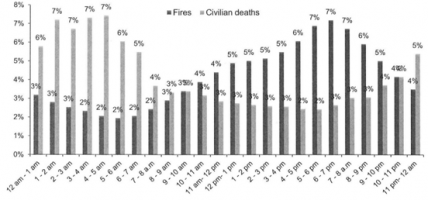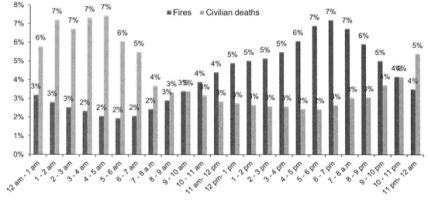Consider this:
- Each year, over 2,300 home fire deaths occur in more than 365,000 reported structure fires. Therefore, the likelihood of surviving a home fire is approximately 99% without regard to the presence of smoke alarms or any other fire safety provisions. Does that mean 2,300 deaths are acceptable? Most people would say no.
- Each year, there are an estimated 12,000 deaths due to falls in homes and an estimated 11 million fall injuries in the home. The likelihood of surviving a fall is therefore 99.9%. Does that mean 12,000 deaths are acceptable? Most people would say no.
- Each year, there are an estimated 42,000 deaths due to motor vehicle crashes and an estimated 6 million reported motor vehicle crashes. The likelihood of surviving a motor vehicle crash is 99%. Does that mean 42,000 deaths are acceptable? Most people would say no.
Change the numbers to percentages and 3/10 of 1% does sound acceptable for fire deaths
or 1/10 of 1% for death due to falls in homes
or 7/10 of 1% for motor vehicle crashes
Numbers will drive more emotions than percentages when making reasonable decisions
rea·son·a·ble
Dictionary result for reasonable
/ˈrēz(ə)nəb(ə)l/
adjective
- 1.
(of a person) having sound judgment; fair and sensible.
"no reasonable person could have objected"
synonyms: sensible, rational, open to reason, full of common sense, logical, fair, fair-minded, just, equitable, decent; More
- 2.
as much as is appropriate or fair; moderate.
"a police officer may use reasonable force to gain entry"
synonyms: within reason, practicable, sensible;
appropriate, suitable, fitting, proper


